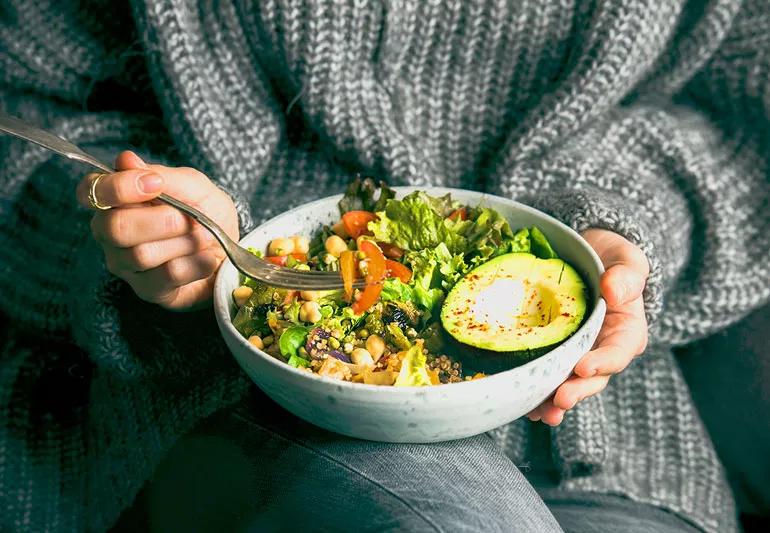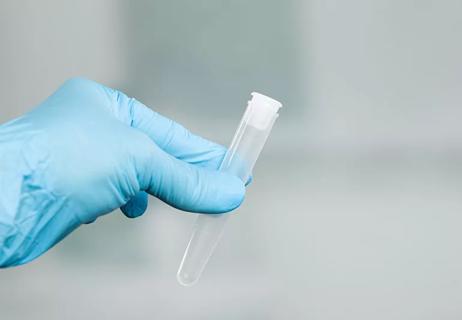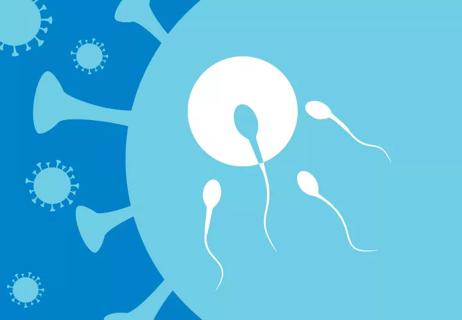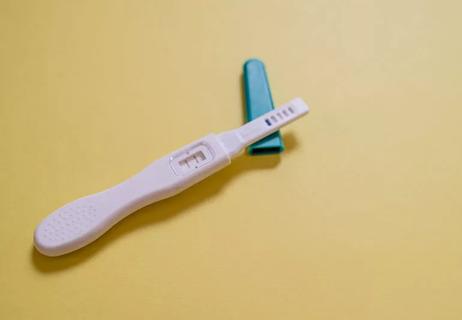Specific foods won’t really affect fertility, but a healthy weight and nutritious diet are helpful

When you’re ready to start or expand your family, your thoughts shift to all things baby-making and fertility. While you’re shopping for prenatal vitamins and looking for the best ovulation app, you may also be wondering what you can do to increase your chances of getting pregnant.
Advertisement
Cleveland Clinic is a non-profit academic medical center. Advertising on our site helps support our mission. We do not endorse non-Cleveland Clinic products or services. Policy
Contrary to what you may have heard, eating specific foods doesn’t significantly impact fertility. But nutritious eating before you get pregnant, along with other healthy habits, is an important part of preparing your body for pregnancy.
Women’s health specialist Jenna Rehmer, MD, discusses the most common reasons for infertility and what you can do to increase your chances of conception.
When it comes to fertility, what you eat may have a small effect. But it’s not the only thing that matters — or even one of the main factors.
“If you’re having fertility issues, it’s probably not because of a lack of nutrients or eating the wrong types of foods,” says Dr. Rehmer. More commonly, infertility can be traced back to age and weight.
Weight matters because it affects hormones, and anything that affects hormones potentially impacts fertility. Fat tissue produces estrogen, and too much estrogen can throw off your hormonal balance and even prevent ovulation. If you’re not ovulating, you can’t get pregnant.
Dr. Rehmer says that polycystic ovary syndrome (PCOS) is another common cause of infertility, especially for people with overweight. With PCOS, your body may produce excess androgenic (male) hormones, which interfere with ovulation.
Advertisement
Are there “best” foods for trying to get pregnant? Not exactly. At least, not in a way that makes for a neat little Top 10 list. Dr. Rehmer says that eating well before you get pregnant is usually more about achieving a healthy weight, as opposed to a matter of eating specific foods.
If you’re seeking a healthy way of eating as you prepare for pregnancy, the Mediterranean diet offers an excellent guide for balanced nutrition. It’s also helpful if you’re trying to lose weight.
The Mediterranean diet focuses on:
Choose whole foods that are low in sugar and nutrient-rich, rather than sugary or processed foods. If you really don’t like the idea of food rules and diet trends, consider intuitive eating. With intuitive eating, you listen to your body’s cues instead of following specific rules about what or how much to eat.
Beyond a nutritious, balanced diet, there are a couple of nutrients to keep in mind when you’re trying to get pregnant.
Folic acid (vitamin B9) helps prevent certain birth defects. When you’re pregnant, it also may reduce the nausea and vomiting caused by the hormonal changes that happen during pregnancy.
If you’re not taking a prenatal vitamin, you can get folic acid from food. Or you can get it from a combination of foods and a vitamin. Aim for 400 micrograms of folic acid per day.
Foods high in folic acid include:
Some carbs are better choices than others. It’s a matter of keeping full longer and keeping your blood sugar lower.
Complex carbs contain more fiber and protein, so you digest them more slowly than sugary carbs. Eating sugary carbs spikes your blood sugar, and that’s not great for your overall health or ability to get pregnant. And as a bonus, complex carbs contain more nutrients, such as important minerals.
Complex carbs include:
Supplements aren’t going to solve most fertility problems, says Dr. Rehmer. And getting too much of some nutrients may be harmful. That’s why a good prenatal vitamin combined with a healthy diet based on whole, unprocessed foods is the best way to go.
Some causes of infertility — such as your age or a family history of certain health issues — are beyond your control. But there are some steps you can take if you’re trying to get pregnant. Dr. Rehmer recommends:
Advertisement
“It’s always good to do things that are healthy for your body, including eating well, exercising and reducing stress,” Dr. Rehmer notes. “But don’t assume these things will fix fertility problems.”
She emphasizes that most of the fertility issues she sees in her practice are related to:
If you’re having trouble getting pregnant, don’t try to troubleshoot on your own.
“Some people let years go by as they try different things that don’t really affect fertility,” says Dr. Rehmer. “And if your natural fertility is starting to decline, waiting a few years can mean the difference between getting pregnant and not.”
You may have heard that you should try getting pregnant for a year before seeking help. But Dr. Rehmer suggests you seek a care provider’s help earlier if you have irregular periods or are over 35.
There are many treatments for infertility, but it’s best not to wait. Together, you and your care provider can get clarity on where your fertility stands and figure out the best plan to boost your chances of getting pregnant.
Advertisement
Learn more about our editorial process.
Advertisement

This simple, permanent procedure may be the way to go

This safe, low-risk procedure can restore your fertility in as little as three weeks

Getting vaccinated won’t impact your fertility, but getting the virus could

The short answer from an infertility specialist

These over-the-counter kits can help you identify when you’re most fertile.

It’s great for stress relief, which can go a long way when you’re trying to conceive

If you change your mind, you have options

Type 2 diabetes isn’t inevitable with these dietary changes

Applying a hot or cold compress can help with pain